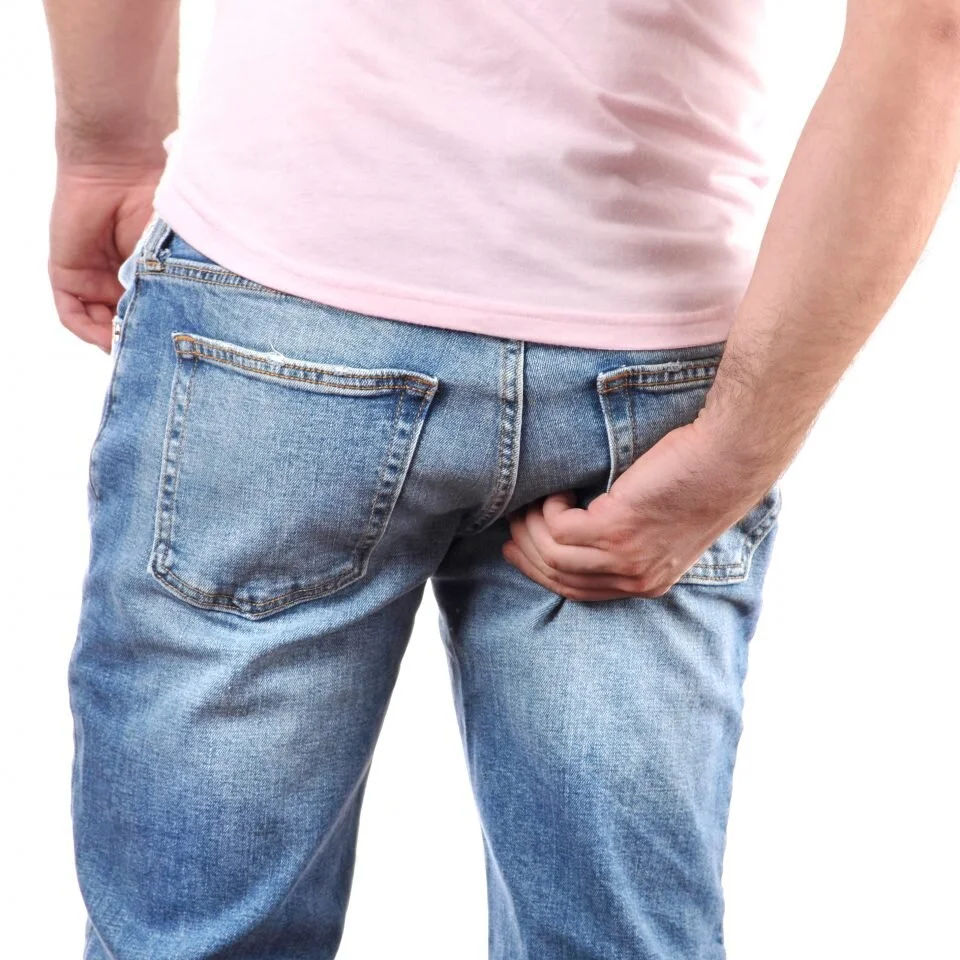Advice centre / Understanding haemorrhoids / Leading symptoms
Haemorrhoids & Itching
There are many causes for the occasional itchy bum such as hot and sweaty weather.
But if you are one of those unfortunate people that seem to be forever trying to discreetly jiggle around to stop the annoying itchy bum, you may be one of the 8 million people in this country that suffer with piles.
eXroid can help. We offer fast and effective treatment in clinics across the UK so get in touch today to book your appointment.
How can I relieve the annoying itchy haemorrhoids?
There are a number of creams and ointments that you can buy over the counter, that will help you reduce the itchy soreness that can flare up from time to time if you suffer with piles.
These treatments won’t cure your itchy haemorrhoids but will help manage the symptoms.
The active ingredient in most over the counter treatments is hydrocortisone. These come in the form of creams, ointments, suppositories and foams.
These are applied 2-3 times throughout the day, from first thing in the morning, to last thing at night and after you have opened your bowels. The hydrocortisone that you find in over the counter products is in quite small doses, but as it is a steroid you should avoid using these products for longer than recommended as they can make the skin around the anus sensitive and the skin to become thinner.
The hydrocortisone products are available under in various brand names, including Anusol, Preparation H, Anugesic HC, Germaloids HC, Perinal, Proctosedyl, Uniroid, Xyloproct and Proctofoam HC.
Could the itchiness be a sign of anything else?
If you mainly experience itchiness at night when in bed, then it could be associated with a threadworm infection. Whilst this is more common in children, as they do seem to get their sticky fingers into places that an adult would stay clear of, it isn’t unheard of for adults to get this too.
The way to spot threadworm is by looking at your stool (poo) before you flush. If you notice what looks like pieces of white thread in the stool, then that may well be threadworm. A quick trip to the pharmacy will sort this out with over the counter medicine. It’s important to treat everyone in the household to make sure there has been no cross contamination.
It is very unusual for an itchy bum to be related to anything more serious like cancer, but if it does persist then it is best to get examined by your GP. Other causes of irritation include inflammatory dermatoses such as eczema, psoriasis or lichen planus, for example, which might require onward referral to a dermatologist (skin specialist) for an opinion and treatment advice.
If you are unsure of what your symptoms may mean, get in touch with one of our advisors for a discreet chat. Please call us on 0800 999 3777 or click here for more contact details.
Other common signs of haemorrhoids
One of the other signs of having haemorrhoids is when you wipe your bottom and you notice spots of fresh blood. The sight of the blood is often quite a worry, even the medical term for it – rectal bleeding – is enough to give you a sleepless night. Whilst it is something you need to get checked out with your GP, it’s best not to get too stressed, as it’s more likely a case of haemorrhoids.
You should be examined by your GP as soon as you can just to rule out anything else and to get advice on how to treat your haemorrhoids.
Some do’s and dont's that will help itchy haemorrhoids
Do
Gently wash your bottom after going to the toilet and before bed time
Wear loose fitting cotton underwear
Have cooler shorter showers and baths (under 20 minutes)
Consider using emollient/moisturising soap substitutes in the shower or bath
Eat plenty of fibre – fruit, wholegrain bread, pasta, cereal – and drink plenty of liquids
Don’t
- Wipe your bottom after having your bowels open. Instead wash with water and pat dry
- Scratch
- Strain when you go to the toilet
- Use scented soaps, bubble bath or bath oil
- Use perfumed powders
- Eat spicy food or drink lots of alcohol or caffeine
Is there a permanent fix for piles?
If you are looking for a cure, unfortunately it doesn’t exist. There are however a number of procedures that will eradicate the haemorrhoids you have at any given time.
These range from invasive surgical procedures to non-invasive non-surgical methods. The main options can be found here.
One of the least invasive, safe and effective treatments is the eXroid haemorrhoid electrotherapy treatment.
It’s one of the newest treatments to be introduced to the UK and has been given positive NICE guidance. Electrotherapy can treat internal piles from grade 1 to grade 4 and, for half of all patients it only requires one treatment, with 80% requiring only two treatments. Get in touch with eXroid today to find out how we can help.
See the benefits of eXroid electrotherapy treatment here.










